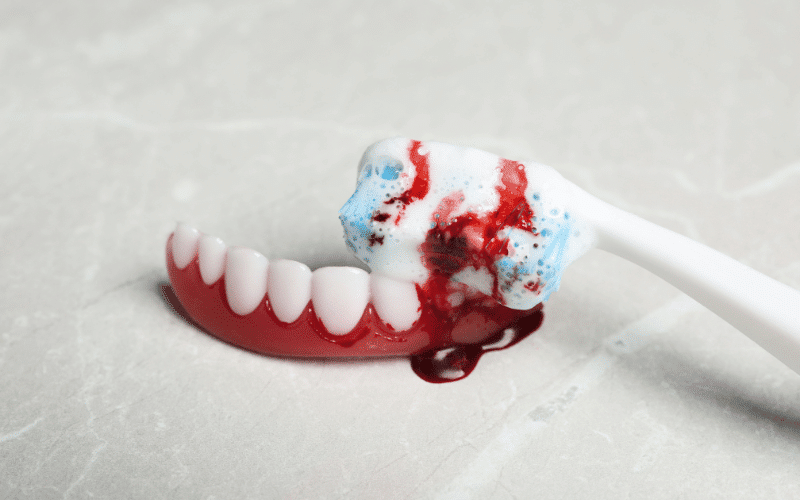
Often characterized by sharp or throbbing pain in the teeth or jaws, toothaches can result from various dental issues. Common causes of toothaches include dental cavities, gum disease, tooth abscesses, and teeth grinding. Cavities caused by bacterial decay expose nerve endings, leading to sensitivity and pain.
Gum disease, marked by inflammation and infection, contributes to discomfort. Tooth abscess, a bacterial infection in the tooth’s pulp, intensifies pain and swelling. Teeth grinding, or bruxism, can wear down enamel and cause toothaches.
Timely dental care, including proper oral hygiene and regular check-ups, is crucial in preventing and addressing the common causes of toothaches.
Common Causes of Toothaches
1. Dental Decay and Cavities
Dental decay, a prevalent oral health issue, leads to the formation of cavities in teeth. Caused by the interaction of bacteria and sugars, this process results in the erosion of tooth enamel. As bacteria produce acid, it gradually breaks down the enamel, forming cavities or holes.
Common symptoms include tooth sensitivity, pain, and discomfort. Regular dental hygiene practices, such as brushing, flossing, and routine dental check-ups, are pivotal in preventing and managing dental decay. Professional treatments like dental fillings are often necessary to address cavities and restore the integrity of affected teeth.
2. Gum Disease
Gum or periodontal disease is an inflammatory condition affecting the tissues surrounding teeth. Primarily caused by plaque buildup due to inadequate oral hygiene, it progresses through stages like gingivitis to advanced periodontitis. Symptoms include swollen and bleeding gums, persistent bad breath, and tooth mobility.
Without intervention, it can lead to tooth loss and impact overall health, linking to conditions like diabetes and heart disease. Prevention involves regular brushing, flossing, and professional cleanings. Treatment includes scaling, root planing, and, in severe cases, surgical interventions. Timely dental care is crucial to halt and manage the progression of gum disease.
3. Tooth Infection or Abscess
A tooth infection, often manifesting as an abscess, results from bacterial invasion of the tooth’s pulp. This occurs due to untreated cavities, cracks, or trauma. The infection causes a painful accumulation of pus, leading to swelling and inflammation.
Common symptoms include severe toothache, sensitivity, and facial swelling. Left untreated, it can spread to surrounding tissues and even enter the bloodstream, posing serious health risks.
Dental intervention, such as root canal therapy or tooth extraction, is essential to eliminate the infection. Antibiotics may also be prescribed. Prompt dental attention is crucial to prevent complications and preserve oral health.
4. Teeth Grinding and Clenching
Teeth grinding, or bruxism is a habitual condition where individuals involuntarily clench or grind their teeth, often during sleep. This repetitive action can lead to various dental issues, including worn enamel, tooth sensitivity, and jaw pain. Stress, anxiety, or misaligned teeth can contribute to bruxism.
Identifying and addressing underlying causes is essential for effective management. Dental interventions may include custom mouthguards to protect teeth, while stress-reducing techniques and lifestyle adjustments can help mitigate bruxism. Timely intervention prevents long-term dental damage and alleviates associated discomfort, preserving oral health and overall well-being.
5. Tooth Sensitivity
Tooth sensitivity is a common dental issue characterized by discomfort or pain when teeth are exposed to hot, cold, sweet, or acidic stimuli. It results from worn enamel, receding gums, or dental conditions like cavities. These factors expose the tooth’s nerve endings, causing sensitivity.
Contributing factors include aggressive brushing, gum disease, or teeth grinding. Effective management involves desensitizing toothpaste, maintaining proper oral hygiene, and addressing underlying causes. Dental treatments such as fluoride applications, dental bonding, or gum grafts may be recommended for severe cases. Timely attention to tooth sensitivity ensures relief and protects dental health.
Other Possible Causes of Toothaches
1. Cracked or Fractured Teeth: Toothaches can occur when teeth are cracked or fractured, exposing the sensitive inner layers to stimuli. This can happen due to trauma, grinding, or biting on hard objects.
2. Sinus Infections: Sinusitis can cause tooth pain, particularly in the upper back teeth. The proximity of sinus cavities to the upper teeth can lead to referred pain, making it essential to differentiate between dental and sinus issues.
3. Impacted Wisdom Teeth: Pain and discomfort may arise when wisdom teeth do not fully emerge or become impacted. This can lead to inflammation, infection, and pressure, causing toothaches.
4. Orthodontic Treatment: Braces or other orthodontic appliances may contribute to toothaches as the teeth adjust. This discomfort is usually temporary and part of the realignment process.
5. Temporomandibular Joint (TMJ) Disorders: Dysfunction of the jaw joint can result in toothaches, often accompanied by jaw pain and difficulty opening or closing the mouth. TMJ issues can arise from stress, teeth grinding, or misalignment of the jaw.
Prevention and Treatment Options
Prevention
1. Good Oral Hygiene: Regular brushing, flossing, and antimicrobial mouthwash help prevent tooth decay and gum disease, reducing the risk of toothaches.
2. Routine Dental Check-ups: Regular visits to the dentist for cleanings and check-ups can catch dental issues early, preventing the development of conditions that lead to toothaches.
3. Balanced Diet: A diet low in sugary foods and beverages helps minimize the risk of cavities and promotes oral health.
4. Mouthguards: For individuals who grind their teeth, wearing a custom-fitted mouthguard can prevent enamel wear and reduce the likelihood of toothaches.
5. Addressing Stress: Managing stress through relaxation techniques or counseling can help prevent teeth grinding, a common contributor to toothaches.
Treatment Options:
1. Dental Fillings: Used to treat cavities, dental fillings restore tooth structure and alleviate pain.
2. Root Canal Therapy: For severe tooth infections, a root canal removes infected pulp, relieving pain and preserving the tooth.
3. Tooth Extraction: Removing the affected tooth may be necessary in cases of severe damage or infection.
4. Orthodontic Treatment: Aligning teeth through braces or other orthodontic interventions can alleviate toothaches caused by misalignment.
5. Pain Medications: Over-the-counter pain relievers or prescription medications may be recommended to manage toothache symptoms while addressing the underlying cause.
In conclusion, maintaining optimal oral health through preventive measures is crucial to avoid common causes of toothaches. Regular dental check-ups at Ortega Cottage Dentistry are pivotal in early detection and timely intervention. Emergency dental care at Ortega Cottage Dentistry ensures immediate relief from sudden toothaches or oral issues.
Remember, a healthy smile begins with proactive dental care. Schedule your appointment today at Ortega Cottage Dentistry, where your oral well-being is a priority. Don’t let toothaches linger; act now for a pain-free, radiant smile. Your journey to a healthier mouth starts here. Smile brighter, and smile confidently because your smile matters!




